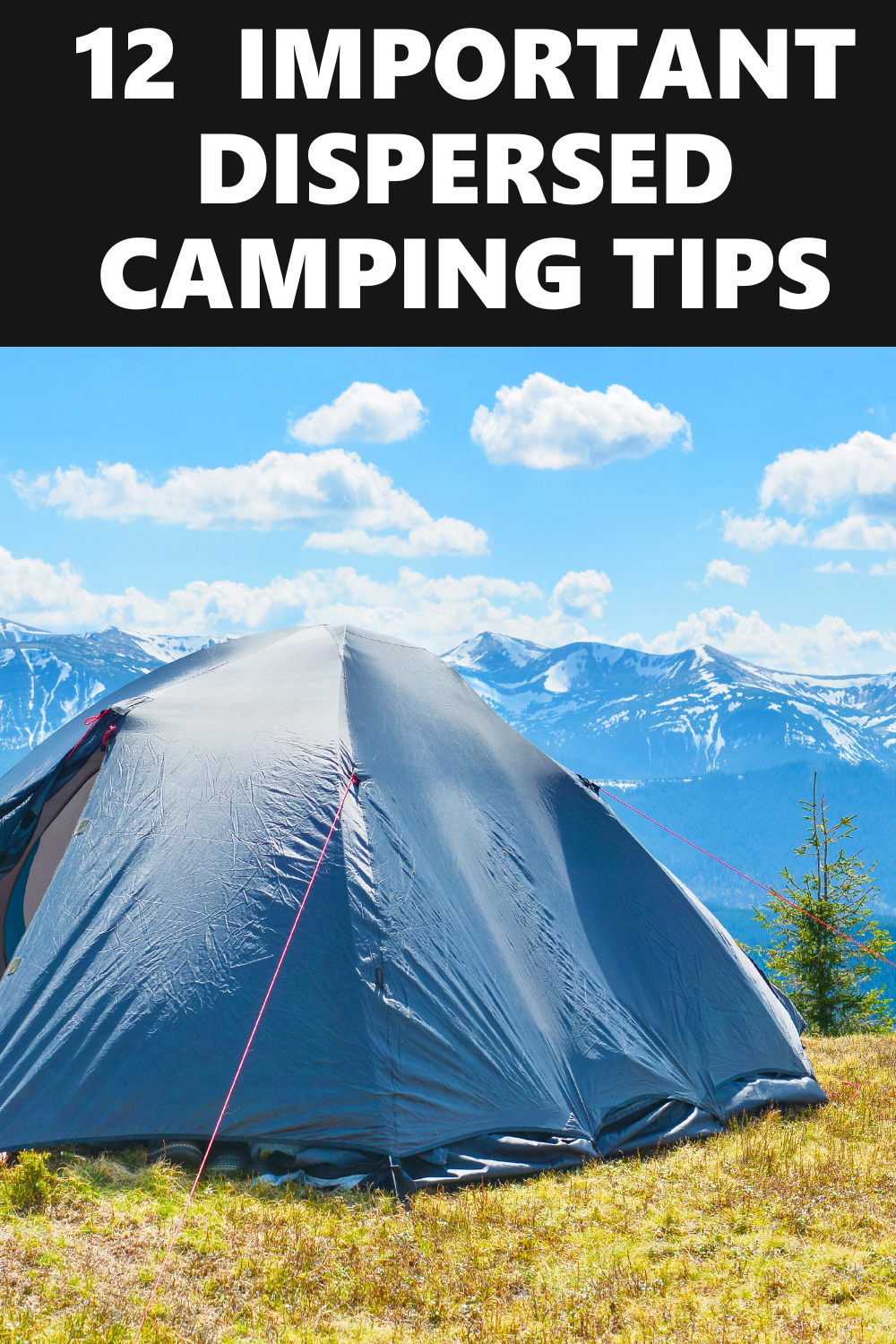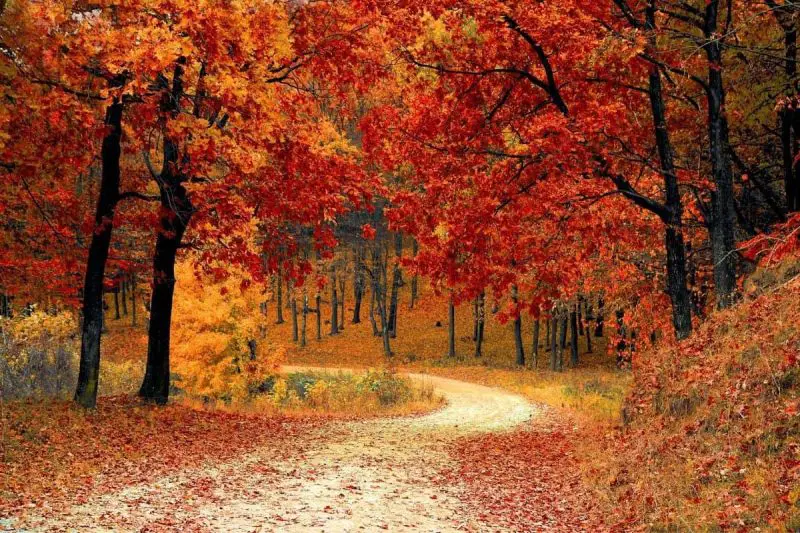Dispersed camping is a form of camping outside a designated campground with free motor vehicles to take away from mother nature. This can be done with just access to the outdoors or going to areas where camping is legal. Dispersed camping offers you more privacy and less noise as it’s not full of other people which equals a good time for you and others. Dispersed camping is essentially dispersed camping because it can be found wherever you want. This means that a person would likely stay at campsites and national parks that are not always near civilization but still have close access to water and fuel.
check out our video
Want more ideas to round-out your Boondocking and Camping Knowledge?
A lot of great ideas are in these posts!
- 5 Top Boondocking vs Dispersed Camping Choices
- 14 Top Must Know Boondocking Tips For Beginners
- What is Dispersed Camping: 12 Good Tips to Get Started
- 8 Tips to Free Boondocking and Free Camping
- Boondocking Lifestyle – 10 Easy Beginner Tips
- The Top 10 Boondocking Safety Tips
These areas would probably be somewhere in the wilderness and away from populated areas. The Bureau of Land Management is often used for this form of camping, as it’s not technically illegal. Many people choose to camp here, as it can give you a more isolated feeling. Dispersed camping can take place on public land or private land. The main difference between the two is that private land requires permission from the owner to use for camping.
However, private land won’t be set up with a campground or trash service. It will likely be kept as it is, meaning no benefits such as fire pits or toilets. In dispersion camping, you must make your shelter from natural resources. This can mean using trees, rocks, and whatever raw materials are available. You can also build a fire pit or make a fire ring to sit around the fire. The best way to disperse camping is to find a quiet area where the amount of people is low. You should also be wary of the weather conditions and ensure that the site you will be dispersed camping in isn’t prone to heavy rain or dangerous weather.
Although dispersed camping can be done at any time of year, it can be done best between May and October because it is when the weather is most pleasant for camping. One good thing about this is that you receive a lot of nature in your camping spot. You will likely be able to find a quiet place with little disturbance. This can be an excellent experience because you never know what you will see when you are out. There is a lot of diversity in the different types of dispersed camping. This means that there is a wide variety of places where someone can disperse camp. Dispersed camping can occur in any environment, including near water sources and mountains, near rivers, and even inside forests if you want to avoid people.

Can Anyone Do It?
Anyone can do dispersed camping, but people need to know their surroundings. If you are dispersed camping in a place close to a city and have too many people, you should try going on public land instead. This is because dispersed camping can be dangerous without planning, so it’s best to avoid crowded areas. If you plan to do dispersed camping for the first time, know where you are going. If possible, you should always stick to public land and never go alone.
Unlike camping in a campground, dispersed camping does not have any rules about staying in one place for long periods. You can stay in one place for as long as you’d like, but this does come with some risks. Try to stick to established campsites and spread out your stay. Dispersed camping is open to all ages, and it is also elementary, so it can be done by anyone who feels like it. Many areas do not require a permit. This means that you can be as private as you want without any access.
Just make sure that the place you are dispersed camping is legal, and you will be all set. If you plan on dispersed camping at a place that requires a permit, make sure you make the appropriate arrangements before your trip. The best way to disperse camp is to plan everything out before setting up your site. This means you need to know where you are going, how long you are staying, and what types of resources are available. The three best places for free camping are national forests, national monument area or of course BLM land. Both BLM and the U.S. forest service have millions of available lands.
If boondocking with a family you may want to look for sites that have pre- constructed fire rings, picnic areas with picnic tables, trash cans, reliable cell service in case of an are emergency and are more easily accessible.
Tips To Start Dispersed Camping
It is essential to have the right tips when carrying out dispersed camping. You want to make sure you are prepared for the campout you have planned. This includes having access to all necessary items but knowing how far you will be from home and how much distance it is. The following are some tips to help you out with dispersed camping:
1) Planning and Preparation
Ensure you have all of your camping gear and supplies before you leave. Dispersed camping is usually done on public land, but this does not mean that it is a public service. So make sure that you have everything that you need before setting off. It won’t be easy to get what you need when you arrive at your destination if you don’t. You want to make sure that your campsite is established before the weather turns for the worse or any other unexpected occurrences occur.
Search for that best place before you leave using resources like google maps, the internet, and look for any of these that may be close to home to get your start boondocking . Dirt roads with camping areas, free state parks, recreation areas, state forests, state forest land, wildlife management areas and national grasslands. All of these can be free resources and can be found closer to home.
2) Monitoring the Weather
It is essential to monitor the weather at all times. This means you need to know when there is the possibility of rain and what will happen during the storm. You will also want to see if it’s safe to travel or if you should stay put. This can occur in any weather condition, but if it happens at night when other people are dispersed camping, it can cause a problem. No one wants to be stuck in their car during a storm, but this is what you may find yourself doing if you don’t know the weather patterns of your campsite.
3) Conserve Your Resources
There are certain things that you need to make sure that you conserve while camping. This can include water, wood, and different food sources that aren’t as easy to obtain. It is important to conserve everything because dispersed camping doesn’t have any amenities nearby to support it. You cannot Camp Firewood at all times. Avoid having a massive fire to spread warmth, as this can cause forest fires and get you into trouble. So while dispersed camping, you should always try to conserve your resources and use them wisely.

4) Safe Traveling
When traveling, you must know where the nearest help is. This can include if there is a hospital nearby or even a gas station in case of an emergency. You want to make sure that you travel safely and take every precaution possible. If you have a motor vehicle, use maps and GPS to ensure that you have the best route to get to your destination. You must make sure that you travel safely and always come prepared for anything.
5) Firmly Establish Your Camp
Try to stick somewhere safe from the weather and other people when establishing your camp. If you can find a place where you are hidden or away from most public activity, this is the best way to go. If possible, keep a fire extinguisher or something of the sort in case of an emergency. If you set up camp with the right supplies, you will be able to survive any weather. The more prepared you are, the better off things will be.
6) Stay Well Hydrated
When dispersed camping, it is essential that you stay hydrated. There are no amenities available to support your trip if you are not hydrated or find that water sources have been contaminated. You should make sure that you have enough water on hand for yourself and any visitors that may come along. Make sure you have enough food with you because there’s nothing worse than finding yourself in a survival situation.
7) Camp With a Partner
This is one of the best part when sharing a wilderness experience dispersed camping with a partner. If both of you are equipped with the right supplies and know-how to use them, you will stay safe throughout your trip. This will also allow you to spend more time enjoying your surroundings. You will have that protection from nature, which many people want when away from civilization. So make sure you camp with a partner whenever possible.
8) Leave No Trace
Dispersed camping can be a fun way to enjoy your surroundings, but it is also essential to take care of your campsite. The last thing you want to do is leave large amounts of trash and debris in your site as some dispersed campers do. If you are not disposing of your trash correctly, this could worsen things during a camping trip. To avoid problems, follow the Leave No Trace principles whenever possible.
If you do this, you will have no issues leaving the area better than when you found it. Human waste should be disposed of correctly as well. In some areas, like in national parks, you cannot use an outhouse because there can be a risk of poisonous snakes and other creatures living in your waste. So make sure to follow the correct procedures with this one.

9) Be Wise With Your Fire
When camping, you want to make sure that you are using fire as a source of warmth and not as a way to set things on fire. Some places let you collect dead wood and others you must bring your own. Always be aware of burn bans in your area.
The last thing you want to do is get yourself in trouble by doing foolish things with fires. Make sure you use your fire as a source of warmth and get it out as soon as you are done. It is also essential to ensure that your fire is completely extinguished before you leave.
If you have a campfire, make sure the fire is put out before bedtime or leaving for the day. Do not build your campfire in a place with dry leaves or other combustible things near the fire. This could result in fires that can get out of control and spread throughout the forest. So make sure you follow this protocol when camping, and you will have no problems with any wildfire.
10) Protect Your Camping Area
Dispersed camping can be a fun way to enjoy your surroundings, but you must keep everything safe. When dispersed camping, it is essential to protect your personal property from being destroyed. This includes making sure there are no signs of trespassing on your property because many people may be passing through the area. You can also set up your camp in an area that is not easily accessible by other people. This way, no one else will disturb your campsite while away. This is the best way to ensure that you have the best time and don’t get into any situations that might be dangerous or put yourself in harm’s way.
11. Make Sure You and Your Campsite are Legal
This is very important when dispersed camping. Make sure you check with the local offices to ensure that you have permission to camp there. If possible, get a permit for your camping area to avoid getting into any trouble for being there. The last thing you want is to get into trouble for camping in the wrong area or doing something illegal. You must follow the rules and regulations so that your trip is safe and fun. If you do this, you will have a fantastic time dispersed camping and will not have to worry about any problems with being in the wrong place at the wrong time!
12. Do Your Research
If you are going to be dispersed camping, you need to find the best locations to go and make sure they are out of harm’s way. As with any camping trip, you must do your research before going. This means researching the area beforehand and figuring out how much time you’ll need there. Make sure that you know what time of year it is to get the best settings for your trip. It’s also essential to get the best gear for your trip so that you will not be uncomfortable in any way. Always be aware of of your exact location to avoid private property.

13. Follow the Rules
To ensure that your dispersed camping trip is as safe as possible, you will have to follow all of the rules and regulations. Some places will have rules regarding how many days you can camp out in an area. Others may have regulations about fishing or any other activities that are allowed. Make sure you follow the rules for dispersed camping, if there are any, so that no one comes down on you unexpectedly.
14. Scout Out the Area
If you are going on a long trip and will be dispersed camping for a couple of days, you must scout out the area. This is so that you can better know where you’ll be sleeping and see where all your water sources are and how many other people will be camping around you. Don’t just park up in the middle of nowhere and hope you get lucky. This can be dangerous and cause you problems when you’re away from home. Make sure that you scout out an area before you go. You will want to check if there are no roads nearby because that could make it difficult for you to get out if something goes wrong. Forest service roads are another thing you will want to look out for. Look for an area with a water source nearby.
15. Carry the Right Gear
You must bring everything that you need when dispersed camping. Make sure you have all the gear with you when you go so that there is no chance of problems. This means putting the right shoes, clothes, and camping supplies in your car before going on your trip. If anything goes wrong, then at least your trip will be safe and enjoyable because you’re prepared for anything. Other things to consider are toilet paper, toilet facilities or a portable toilet.

16. Be Cautious Choosing A Campsite
When dispersed camping, you can pick out a spot in the woods that has an area that you feel would be ideal for dispersed camping. You will want to check out the place before you go. This is so that you can see what kind of area it is and how safe it will be for your trip. The last thing you want is to get into bad weather conditions or other hazards when you’re away from home on your trip. You can tell if the area is safe for dispersed camping by looking at the trees in the area. If there are many large trees around, you will know it will be challenging to set up your camp.
17. Beware of Wildlife and Wild Fires
The last thing you want is to get into trouble when dispersed camping. Ensure you do not get too close to any natural hazards such as wildfires or wildlife. You will also want to make sure that you take note of the area so that you are not camping in a place where natural hazards should be avoided. Debris, spots that animals or fires have damaged, and areas with many roots are all examples of places where natural hazards can occur. Know the wildlife you may encounter and bring a bear canister when camping in bear country.
Conclusion
Dispersed camping is a great way to enjoy the outdoors no matter what season it is. You will have a great time if you go dispersed camping, so make sure that you take all of the precautions necessary to ensure your safety and enjoy your trip. Just be sure you are prepared for any natural hazards and that you are getting everything to help you enjoy your trip. While this is a great opportunity one should always be well prepared for any emergencies.
You May Want to Join Our Boondocking Group on Facebook For More Information
You May Want to Join Our Campfire Recipes Group on Facebook For More Information
Check Out Our Pictures On Instagram – Our Big Escape.

